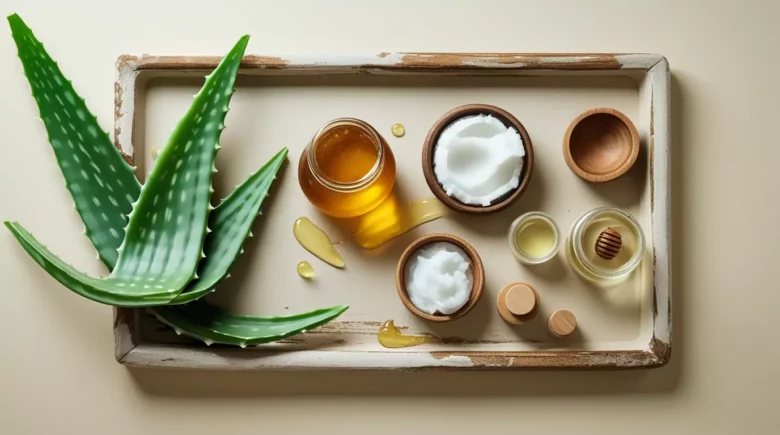How to Reduce Hyperpigmentation Around Mouth: Natural & Dermatologist-Approved Solutions
Hyperpigmentation around the mouth is a common skin concern that affects many people, especially those with medium to dark skin tones. This uneven skin tone can be caused by several factors, including sun exposure, hormonal changes, friction, or post-inflammatory marks from acne or irritation. If you’re tired of dark patches making you feel self-conscious, the good news is that there are effective ways to reduce hyperpigmentation and restore a more even, radiant complexion.
- How to Reduce Hyperpigmentation Around Mouth: Natural & Dermatologist-Approved Solutions
- What Causes Hyperpigmentation Around the Mouth?
- 1. Use a Gentle Exfoliator Regularly
- 2. Apply Sunscreen Every Single Day
- 3. Incorporate Skin-Lightening Ingredients
- 4. Moisturize Daily to Prevent Irritation
- 5. Try Natural Home Remedies (with Caution)
- 6. Avoid Touching or Irritating the Area
- 7. Stay Hydrated and Eat a Balanced Diet
- 8. Consider Dermatological Treatments for Faster Results
- Final Thoughts
In this article, we’ll cover the best ways to reduce hyperpigmentation around the mouth using both home remedies and dermatologically approved treatments—so you can choose what works best for your skin type and lifestyle.
What Causes Hyperpigmentation Around the Mouth?
Before diving into the solutions, it’s important to understand what triggers pigmentation around the mouth. Common causes include:
- Excess sun exposure without sunscreen protection
- Hormonal imbalances (such as melasma during pregnancy)
- Post-inflammatory hyperpigmentation from pimples, burns, or irritation
- Licking lips or drooling, which can irritate the skin
- Allergic reactions from toothpaste, lip balms, or skincare products
- Vitamin deficiencies, especially Vitamin B12
- Excessive dryness leading to irritation and discoloration
Knowing the root cause helps in choosing the most effective treatment.
1. Use a Gentle Exfoliator Regularly
Dead skin buildup can make dark spots appear more prominent. Use a mild exfoliator with alpha hydroxy acids (AHAs) like glycolic acid or lactic acid 2–3 times a week. These acids help in removing dead skin cells and promoting new cell turnover.
Tip: Avoid harsh scrubs or physical exfoliants around the mouth, as they may irritate the skin and worsen pigmentation.
2. Apply Sunscreen Every Single Day
Sun exposure is the number one enemy of pigmentation. Even if you’re indoors, UVA rays can penetrate through windows and worsen dark spots.
Choose a broad-spectrum sunscreen with SPF 30 or higher and reapply every 2–3 hours if you’re outside. Look for sunscreens with ingredients like zinc oxide or titanium dioxide, which are gentle and effective for sensitive areas like the mouth.
3. Incorporate Skin-Lightening Ingredients
There are several safe and effective ingredients that help lighten hyperpigmented areas:
- Niacinamide (Vitamin B3): Reduces inflammation and brightens dark spots.
- Vitamin C: An antioxidant that inhibits melanin production and boosts collagen.
- Licorice Extract: Natural lightening agent that calms irritated skin.
- Kojic Acid & Azelaic Acid: Effective for fading pigmentation and acne scars.
- Retinol or Retinoids: Stimulate cell turnover and reduce discoloration.
Use these ingredients as part of your night routine, and always follow up with sunscreen during the day.
4. Moisturize Daily to Prevent Irritation
Dry and irritated skin around the mouth can trigger more pigmentation. Use a gentle, fragrance-free moisturizer to soothe the skin and strengthen the barrier.
Look for moisturizers with ceramides, hyaluronic acid, and squalane to keep your skin hydrated and calm.
5. Try Natural Home Remedies (with Caution)
If you prefer natural solutions, you can try ingredients that are known to have mild skin-brightening effects:
- Aloe Vera Gel: Hydrates and reduces inflammation.
- Potato Juice: Contains natural enzymes that may lighten dark spots.
- Turmeric Paste: Anti-inflammatory and may reduce melanin production (mix with honey or yogurt to prevent dryness).
- Tomato Pulp or Lemon Juice: Natural bleaching agents (only if your skin is not sensitive).
Note: Always do a patch test before applying any natural remedy to your face, and avoid lemon juice if you have sensitive or dry skin.
6. Avoid Touching or Irritating the Area
Constantly touching, picking, or scrubbing the area around your mouth can lead to more pigmentation. Avoid:
- Rubbing with towels
- Licking your lips frequently
- Using harsh lip balms or flavored toothpaste
- Using expired makeup or skincare products
Protect the area and treat it gently to help it heal faster.
7. Stay Hydrated and Eat a Balanced Diet
Hydration and nutrition play a key role in your skin’s overall health. Drink enough water and eat foods rich in:
- Antioxidants (berries, leafy greens)
- Vitamin C (citrus fruits, bell peppers)
- Vitamin B12 (eggs, dairy, fortified cereals)
- Zinc & Iron (nuts, seeds, lentils)
Also, consider getting your blood work checked if pigmentation is persistent—it could be linked to vitamin deficiencies.
8. Consider Dermatological Treatments for Faster Results
If home remedies and skincare products aren’t giving visible results within 2–3 months, you may want to consult a dermatologist for advanced options:
- Chemical Peels (Glycolic, TCA, or Lactic acid peels)
- Laser Treatments like Q-switched Nd:YAG or fractional laser
- Microneedling with serums
- Prescription creams (hydroquinone, tretinoin, or corticosteroids)
These treatments should only be done under professional guidance to prevent side effects or further pigmentation.
Final Thoughts
Reducing hyperpigmentation around the mouth takes patience and consistency. Whether you choose natural remedies or dermatologist-approved treatments, the key is to protect your skin from the sun, nourish it from within, and avoid anything that could irritate the delicate area.
With the right care routine, you’ll begin to see your skin tone even out and your confidence shine through.
Remember: There’s no overnight solution. Be gentle, stay consistent, and trust the process.





















